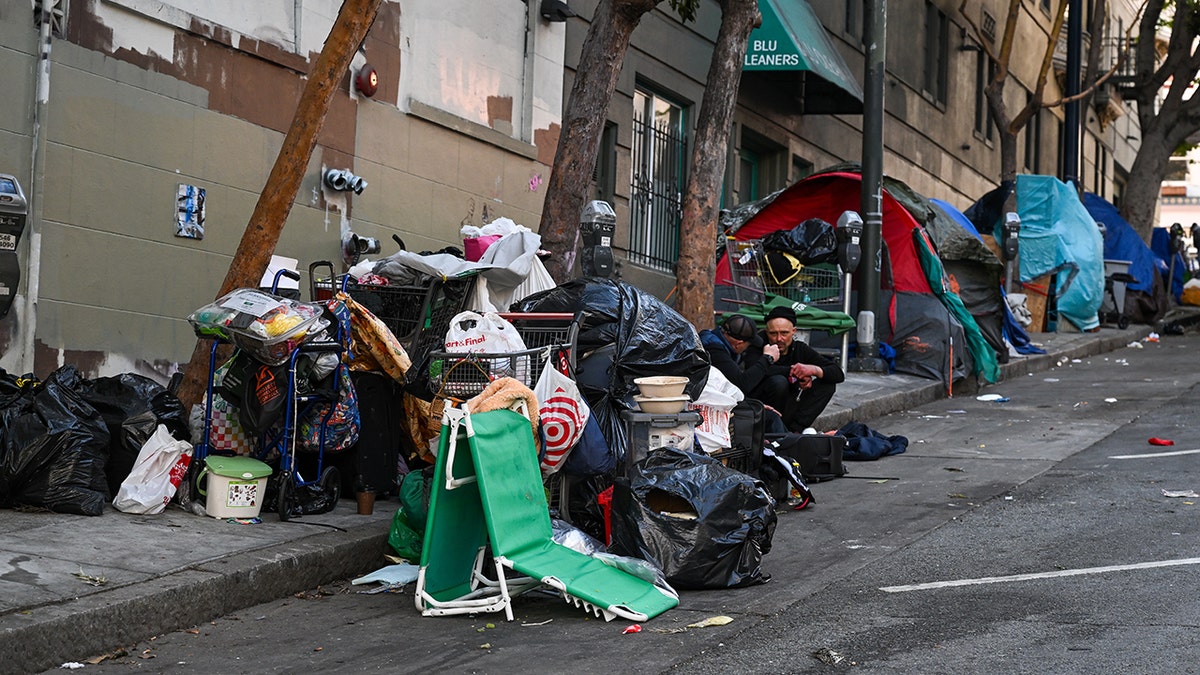Portland begins enforcing new regulations that crack down on homeless camps
Portland business owner Loretta Guzman on new homeless regulations banning homeless camps and fining people for refusing to accept a bed if it is offered to them at a homeless shelter.
The U.S. Supreme Court just took the first step toward a rational approach to the problem of homelessness by overturning a Ninth Circuit ruling that prohibited cities from enforcing their laws against camping in public parks and on sidewalks.
That decision, called Johnson v. Grants Pass, declared that it violates the Eighth Amendment’s "cruel and unusual punishment" clause to arrest people for sleeping on public property, unless the government had sufficient space in its own homeless shelters to house them.
This across-the-board numerical formula effectively barred — or was at least interpreted to bar — cities from taking steps to help the homeless, and many cities, including Phoenix, saw the decision as a convenient excuse to refuse to do their jobs. The result was a massive spike in homelessness, particularly in the western states subject to the Ninth Circuit’s authority.
US SUPREME COURT UPHOLDS CONTROVERSIAL ANTI-CAMPING LAWS USED AGAINST HOMELESS PEOPLE IN OREGON CITY
The decision made no sense, however — and the Supreme Court overturned it in a 6-3 ruling that rightly holds that nothing in the Constitution creates a right to live in public parks or on sidewalks or ties the hands of local officials to deal with the problems of homelessness in local communities.

A homeless encampment is seen in Tenderloin District of San Francisco, California, United States on June 6, 2023. (Photo by Tayfun Coskun/Anadolu Agency via Getty Images)
The Ninth Circuit’s "experiment," writes Chief Justice John Roberts, "exemplifies much of what can go wrong when courts try to resolve matters like those unmoored from any secure guidance in the Constitution. ... [H]ow are city officials and law enforcement officers to know what it means to be ‘involuntarily’ homeless, or whether any particular person meets that standard? Posing the questions may be easy; answering them is not. Is it enough that a homeless person has turned down an offer of shelter? Or does it matter why? Cities routinely confront individuals who decline offers of shelter for any number of reasons, ranging from safety concerns to individual preferences. How are cities and their law enforcement officers on the ground to know which of these reasons are sufficiently weighty to qualify a person as ‘involuntarily’ homeless?"
The unanswerability of such questions shows why even city officials acting in good faith found the Ninth Circuit’s one-size-fits-all rule unworkable — and why city officials not acting in good faith found that rule a handy rationale for simply leaving the homeless on the streets, as Phoenix officials did when they created the infamous "Zone."
CLICK HERE FOR MORE FOX NEWS OPINION
This new decision also makes clear why local communities must take responsibility for enforcing the law to protect taxpayers and property owners, rather than engage in massive, ideologically driven dereliction of duty.
Arizona voters will have a chance to do just that this fall, when they consider Proposition 312, an initiative that provides that when city officials purposely create homeless encampments and lawless zones, as Phoenix leaders did in recent years.
Citizens who take steps to protect themselves — by installing security bars or cameras or hiring a security guard — will at least be entitled to deduct the costs of doing so from their taxes, and cities that refuse to shoulder their responsibilities have their funding reduced proportionately. If cities won’t do their jobs — as Phoenix refused to do — taxpayers should at least get their money back.
CLICK HERE TO GET THE FOX NEWS APP
The reality is that there are as many causes of homelessness as there are homeless people. Overturning the Ninth Circuit’s absurd and unworkable Grants Pass rule won’t cure the homelessness problem, by any means.
But it does open the door to working toward cures — cures that can only work on a case-by-case basis, addressing each situation in light of that individual’s needs and capacities, rather than regarding them as incapable of making decisions or being held responsible, as the Ninth Circuit’s ruling did.


